|
You remember the Deca Hotel. It stood there for 86 years, at 45th and Brooklyn, northwest corner.
The appropriately-named venue had a lobby that must've made many an interior designer pause; for though they may have traveled far and wide, no room has ever had a greater variety of Art Deco-themed chairs. High-backed affairs with an African inspiration. Seats that looked like a musician's snare drum. Gold-trimmed arthropodic monstrosities from the fashion school that tries hard to be uncomfortable. It all bordered on ridiculous but achieved a certain warmth in its inclusive chaos, a welcoming coherence born of balanced disparities. Doesn't that describe my 7/49 route to an exact tee? No wonder I felt at home. Look at this hodgepodge, charm and creativity all sourced from the same time period– jazz, bookcases, fireplaces: America the modern, counting time between World Wars. When I did the nighttime 7/49 (which I'm temporarily away from to avoid forced overtime, but have every hope of returning to), I'd take my breaks in the Deca Hotel lobby if there was time. It was a breather both from and of a piece with the inherent ridiculousness of that route. The storied airs of Broadway and Rainier, chaotic, colorful, often absurd... Naturally ending in an immaculate art deco timewarp with a warm fire. Of course. It was just outlandish enough to make perfect sense, and I loved it. I'd stretch out with a book from their color-coordinated shelves, or more often sprawl out with an eye toward the high ceilings, neither reading much nor thinking, just being, drifting off the focused high of driving and public engagement. Taking in the dulcet Euro-trance tunes, a piped-in tinny melancholy you associate with all-night settings, airports and cleaning crews and vacant reception desks. I loved the conflation of sensations I'd feel. Exhausted, but pleasant; the shoulder aches fading away, blood returning to my calves. Echoes of recent conversation floating in memory. The warm fire, just the homey anachronism I needed to compliment the jungled urban night. Often the timing had me in there for a brief spell only: ten minutes, frequently less than five. But here there was room to breathe, and I'd be remiss if I didn't heed the advice of an Eastern European novel about a maid I opened up in there one night, whose title and author I've long forgotten, but a line from which I hold close to my heart as a maxim: "She took life as it came, and made the best of it." My eyes would wander up and out over the lobby, living in the raised ceilings and top-to-bottom wall mirrors. I saw myself as if from above. I'll be older someday. I'll be older, and I'll drift back to this moment, these nights. The cluttered high-flying days of youth, and the peace we here and there managed to grab hold of. I used to drive city buses in South Seattle in the middle of the night by choice, I'll think to myself. And I took my breaks in the lobby of the Deca Hotel. I will look back on these fresh-faced days in all their strife and color, and know myself enough to know that I will name them as some of the happiest days of my life.
2 Comments
The lil' surprise I was talking about here is this: I'll be doing an author event at Elliott Bay Books on January 15 (a Tuesday), at 7pm!
Did you miss my book launch? Probably not, since there were a million people there... But if you did– or if you want an event more focused around discussion on the book itself, since that show was really largely more about the photographs, or if you want to stop by and just hang out again, or bring your friends, or if you maybe just want to pummel me with bus questions (please!), please come. I'd be thrilled to see you. The book is now on sale at Third Place Books in Lake Forest Park. It continues to be for sale at Phinney Books and Madison Books, and, of course, Elliott Bay (link to purchase online!). Happy Holidays! She's become a good friend of mine. Wavy black hair down to here; a youthful spirit with attitude to burn, at once streetsmart and as well-read and detail-oriented as they come.
What were we talking about? We were being silly. The Seahawks game was letting out, and south downtown was turning into a used car lot. We really weren't going anywhere. Our mostly empty bus didn't mind; my companion stood up front with me, a wheelchair-bound passenger along with several others scattered behind us. Plenty of time and space to chatter away. She and I were talking about railroad crossings, me jokingly going through every step of the process. "Here we are safely coming to a stop between fifteen and fifty feet away from the tracks while feeling great about it. Here we are putting on our emergency four-way flashers to indicate to cars behind us that we're interested in stopping at these tracks. Now we're looking around and listening to see if there's all kinds of trains going by. I'm noticing an alarming lack of trains crossing in front of us." "Oh my God." "So I'm going to carefully," "Mm hmm," "Proceed forward over the tracks while continuing to look and listen for trains to the left of me and also, actually, trains to the right of me..." I was being sarcastic and serious at the same time. No bus driver actually likes stopping at railroad tracks. But we all do it. Because if you don't, it's a three-day suspension without pay plus discipline, and if you do it again, you're looking at termination. So we find a way to get through it and have a nice time. Holgate has endless sets of railroad tracks, and it was time to stop at another cluster. "Here we are having a fantastic time stopping between fifteen and fifty feet in front of yet another set of what appear to be some railroad tracks..." There were jokes made about the ungodly hordes exiting the stadium, and how the traffic cop on duty seemed to be letting all 50,000 people cross first. We survive somehow. A friend who knows your sense of humor is as good a salve as any for stuck traffic and the swarming blue-green throng. We made it to downtown without incident. The fellow in the wheelchair got off at Jackson. He'd been there the whole time, overhearing our banter, momentarily taking part when I'd explained a reroute. Older fellow not yet old, dark-skinned American, with the bedraggled markers of being down and out: a missing tooth or two, spot of debris here, crumbly textures and faded color there. Signifiers one has no choice in displaying. I wondered if he was a vet. "Thanks for stoppin' in, man," I said, as he wheeled his way forward to exit, awkwardly, pushing with powerful shoulders. My friend of the wavy hair had stepped outside to let him pass, and he and I had a moment alone. "Hey," he said. "I was listening a little to you two talkin', I din't mean to eavesdrop." "Oh that's fine." "I just wanted to say that you are generous and kind. And every time I'm on your bus it makes my day." Pause. "But listening to you two tonight, made my month." Somewhere in that last sentence his voice cracked, and cracked again. Tears, unbidden, from a man my father's age; what few things are more beautiful, more gently pure in their uncontrived truth? The way the face stops caring what it looks like when sorrow takes over, the mouth expanding in a painful flat line, eyes going away. I cry less when faced with great cruelty or anger than when people are enormously good to each other. When I'm reminded of the intense loneliness that being human requires. He was cut from the same cloth, he and I, and his tears spoke a language I know well. Acts of goodness always to some degree involve the act of giving, and the giving of intangibles– kindness, respect, love– is the tool we humans have for staving off the crushing loneliness of a mortal life. "What's your name," I asked. "Corey," he replied, shaking my proferred hand. The way he said it, you'd spell with an E; don't know why I thought that. Maybe it was the echo of his faint down-home southern accent, a lifetime of histories and secrets nestled in a half-extended syllable. "Corey, my guy, I'm happy to meet you. You can ride my bus any time, any day. I'm on this route every night." I accept you for who you are, and we'll keep doing that thing we do, taking life as it comes and making the best of it, never mind how many railroad tracks we have to stop at, or worse. With the reminder that lives in a smile, we'll get by. This sort of thing makes me blush. It feels surreal. Did we really just sell out our entire first print run in a under three weeks? There have been lots of runs to the post office, as I personally mailed copies to you while we scrambled to get a second run printed. It's here now, and everything's good in the neighborhood.
Purchase the book online here, through Elliott Bay Books. Find it in local bookstores like Elliott Bay or Phinney Books– Tom, the owner at Phinney, is wonderful. He's setting up shop with a new store (Madison Books) in Madison Park as well. It also lives at Third Place Books (at Lake Forest Park, my favorite branch). Ask your other local booksellers about getting a copy; we're continuing to reach out and develop relationships. Where you won't find the book is on Amazon; I think they have enough money! We want to keep the little people alive too. In case you missed it, here I am
This book idea got rejected by countless publishers in New York. Countless. The reasons were varied, but centered around the fact that there's no other book like it on the market; the author isn't popular enough; the stories are too confusing(!); the subject matter won't resonate; it's too unlike other bestsellers. Which is why we did it from the ground up ourselves. As I've said earlier, this is a home-cooked meal. The success it's already had floors me. I was just happy to get the book out. But things are happening. I have a lil' surprise to announce shortly– stay tuned! But for now, tell your friends about the book! Poke around on the blog (good places to start here), and if you like what you find, give the book a try. Let's show those naysayers that there are those of us who actually do want to focus on compassion and empathy to all people. That kindness really can sell. Thank you for reading! More anon! "How's it goin', old school," said one man to another.
They shared in the brotherhood of being tall, a slow-hipped swagger from the American past, two dark-skinned street denizens born before the microwave. They were the generation that saw Vietnam come home and remembered the days before computers. I wondered if they might have been– like me– more at home amongst the earthy grit of Aurora than marooned out here on Greenwood. But here we were. I like listening to other people talk. It goes without saying that I learn more from listening than talking, but I definitely learn more when I'm not even part of the conversation, and have the luxury of eavesdropping. The one with the fedora and ear piercings spoke to the fellow with the stylish cane, giving a soliloquy I found poignant. Mr. Stylin' Cane had just commented on another of the many new apartment buildings lately sprouting* out of the ground, unaffordable to most and eyesores to architects the world over. Mr. Fedora sighed wistfully. "It's fa sho changin', you got that right. Like our parents used to say, cain't even recognize this place. But hey. We's the old folks now, talkin' 'bout the old days. You know back in the day, the old Seattle, how it used to be? The way stuff looked, how it was? And you'd see people around, but you was never really friends wit' 'em? But you see 'em now and it feels like they are?" The storytelling pause. He continued. "'Cause you and them both know how it used to be. It's so different now. But man, you see their face and it feels like everything's A-okay, maybe jus' fo' a minute. 'Cause they understand you. They got memories you also got." I realized then that this was his way of naming his listener as one of these very folks, someone never really a friend but a friend now, because here we were tonight, marooned not just on Greenwood but more potently in the future. Here we were, together. "I know just what choo mean," the listener replied. "Ah get that feelin' all the time." Which meant, of course, the same in return. They say women always mean more than they say, while men say exactly what they mean. But when it comes to emotions, anything sensitive, men, raised as they are to suppress feelings, to pretend against delicacy and matters of the heart... Well, they speak in code as much as anyone else. The bald and unvarnished truth of the listener's response might really be something more like this: Thank you for being you, and being here. Because it makes me feel like myself. Which he definitely didn't say. But that doesn't mean he didn't mean it. --- *Like everything to do with housing, this is more complicated than it sounds. An interesting comparison with Vienna's housing solutions here, courtesy of Mike Eliason at The Urbanist. Update to the update: the second print run has now arrived! Head on over to Elliot Bay Books to grab a copy!
Just a quick update here– I've added a page on the site with info about my book and how to order it. We're currently anticipating a second printing (!) arriving within the week. After it arrives the bookstores we have agreements with will start stocking again. Thanks so much for your support and enthusiasm in buying this little baby of mine! I never imagined it could be this popular! How I love being proven wrong on these sorts of things... Thanks to all of you who have already reserved copies! This one is a companion piece of sorts to the one below.
--- He swaggered onboard with the lost hope of a man who wished he ruled the world. In delusion there is comfort; maybe he did and still would, in the final place where such things matter, the secret recesses of your mind and that of your friends. I was grateful for his familiarity on this 5/21, where I feel like a stranger in a strange land: a crush of haggard commuters now, the affluent, overworked, and exhausted set, not interested in talking and perhaps understandably so. I'm no judge. People have different solutions for the parts of their lives they don't like. I'm used to a different type of crowd, though. The Seattle I describe in an earlier post isn't the Seattle of most of these route 5 passengers tonight. But this man, this swaggering dark-clad man with the wild eyes... this man spoke my language. You may not know that crack cocaine often has no noticeable odor. He smokes it in the back of buses sometimes, and you can see the full whites of his distended irises from all the way up here, where I'm sitting, through the rear-view mirror. That sack-boned gone and dirty need, a speedometer starting at shame and going the other way... What is it about reducing yourself from a human mind to a mere lonely chemical? I see the pipe and I see irreversible brain damage. He sees it and sees release, freedom, comfort, all the things he can't find in easy reach. But my job is not to solve the big problems. That's on someone else. I see too many. I'm not sitting on the piles of capital and infrastructure opportunities that would help. I'm doing what the power players can't do: I can be their friend. I'm the authority figure who has no agenda. Let me help you feel acknowledged, free, comforted. I tell myself I'm okay with all of what I see. It looks like I don't care. But that's where I need to sit in order to offer what I have. You're Abdulahi, drunk at 8 AM, and all the cops and aid workers in Seattle know you and they're rolling their eyes. Everyone else is crossing the street to get away from you, because you're scaring people. But I know your name, friend, and I lean in for a fistpound, as I did this morning in the line at CVS. Because you're my people and you've been nice to me. I leave the solving of problems to more-equipped others. I stick with what I'm best at, and what they may not be able to do as easily: make you feel human. One night I talked to him at the terminal, after the others had all left. "Hey, my guy." "'Sup." "Listen, you're welcome to ride my bus again, but I gotta ask you one favor, which is to please, dude, we can't be lightin' up in here. Can't be smokin' out inside the bus with all these other people. I don't mean no disrespect." "It's cool, it's cool, I won't do it no more." "I know sometimes it's hard, maybe you really want to, but just outta respect, I gotta ask you please." "I gotchoo, bro. I apologize." "Thanks, man." And he stopped. Two weeks later he got on again. "Thank you for not smoking, my guy," I quickly said. "Ey!" Elastic toothy grin, making my heart soar with relief: "You remember!" "I appreciate you!" "You a cool bus driver!" And that's how it's been since. "Ah be good, ah be good," he'll say when he slips on. And he is. It was in the breath of our histories (above and earlier, linked below*) that he saw me now, tonight. "THE FIVE?" he exclaimed, in shock. "I KNOW," I replied, throwing my hands up in the air. "Aintchoo sposed tuh be on the 7?" "TOTALLY, MAN! It's like, what am I doing here?" "Ey. It's good to see you." I can't tell how he's doing, if he's better or worse tonight. But he engaged. He was kind. I no longer mind if people are unresponsive to me. But doesn't it feel good when they do respond? I'm sure these plugged-in people have their strengths. Silence and interiority are virtues, not drawbacks. But. He was the person on this bus who said hi to me. I was Abdulahi at CVS, and he reminded me that I belong, too. And that counts for something. --- *These sorts of things can come and go with the tides. Here he is doing worse, and better; incremental improvement is still improvement. |
Nathan
Archives
July 2024
Categories |
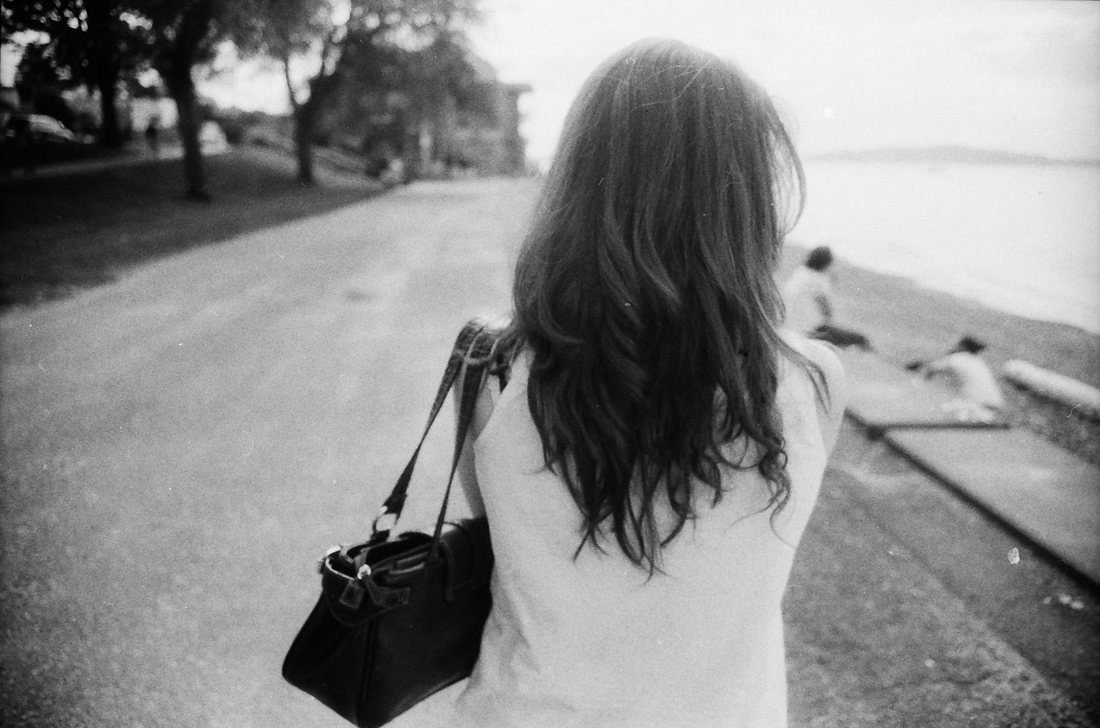
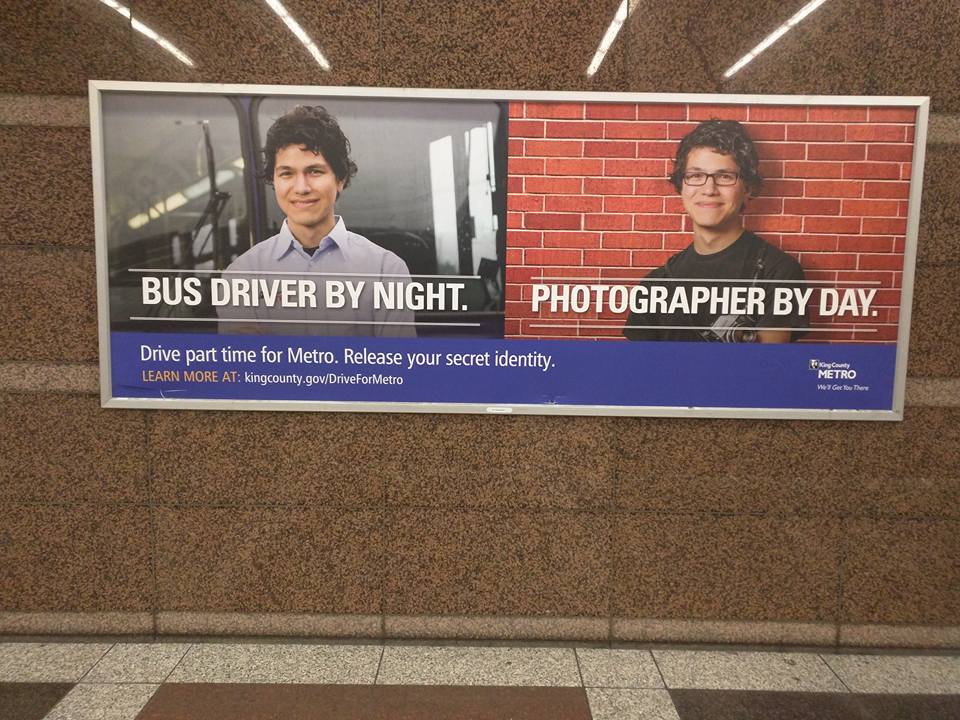

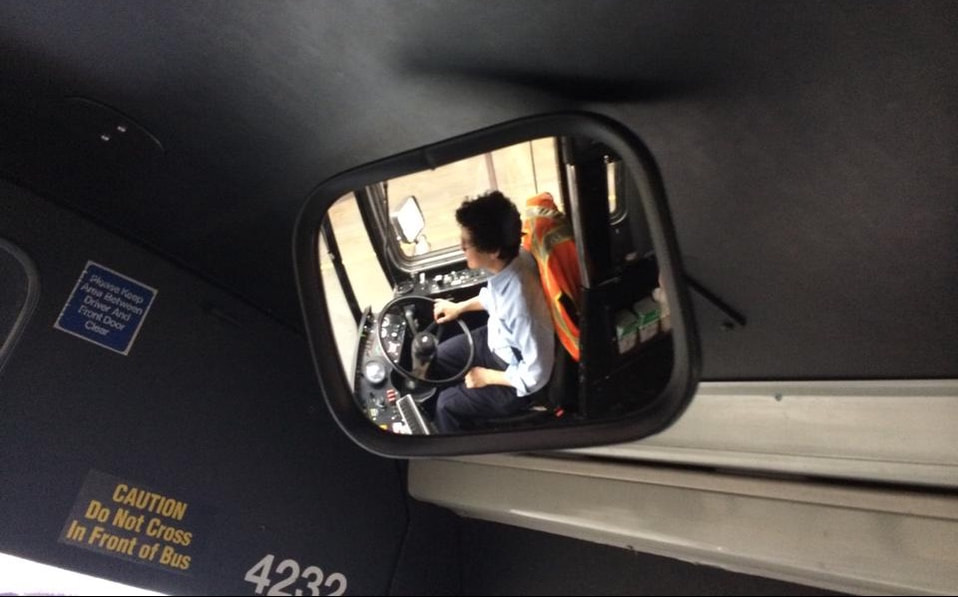
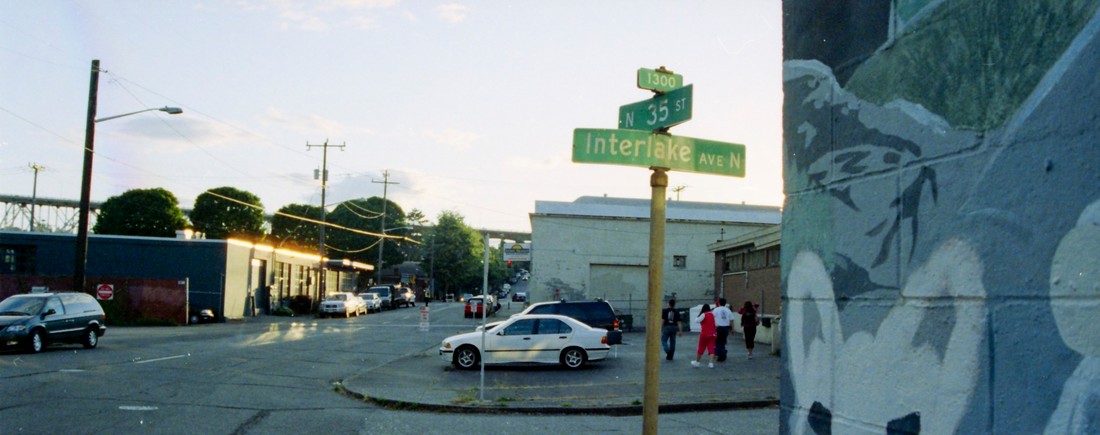
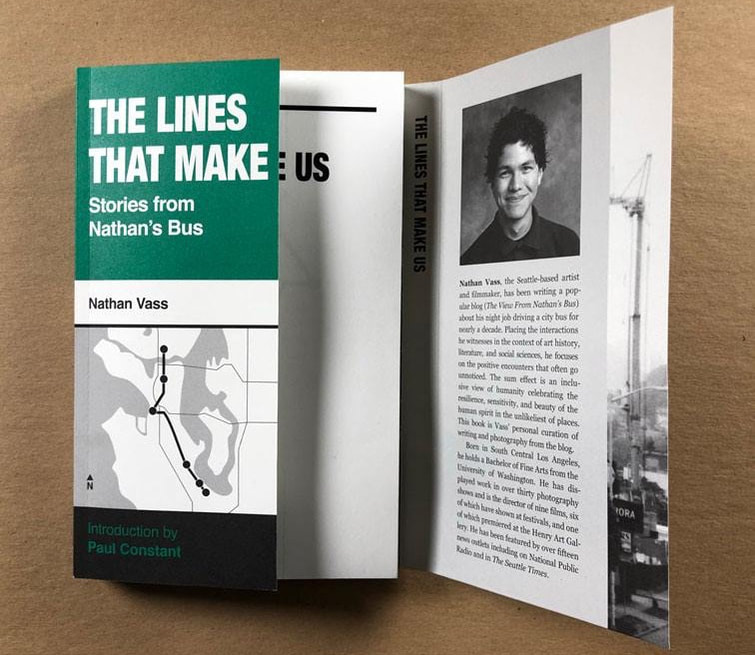
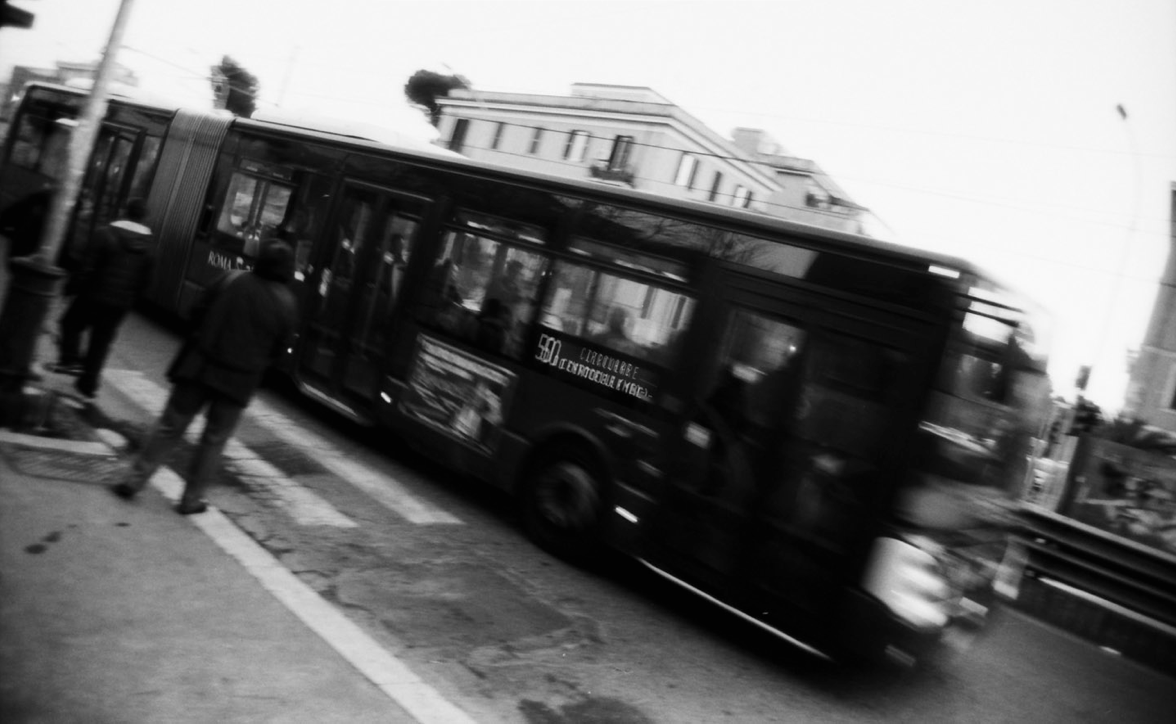
 RSS Feed
RSS Feed
